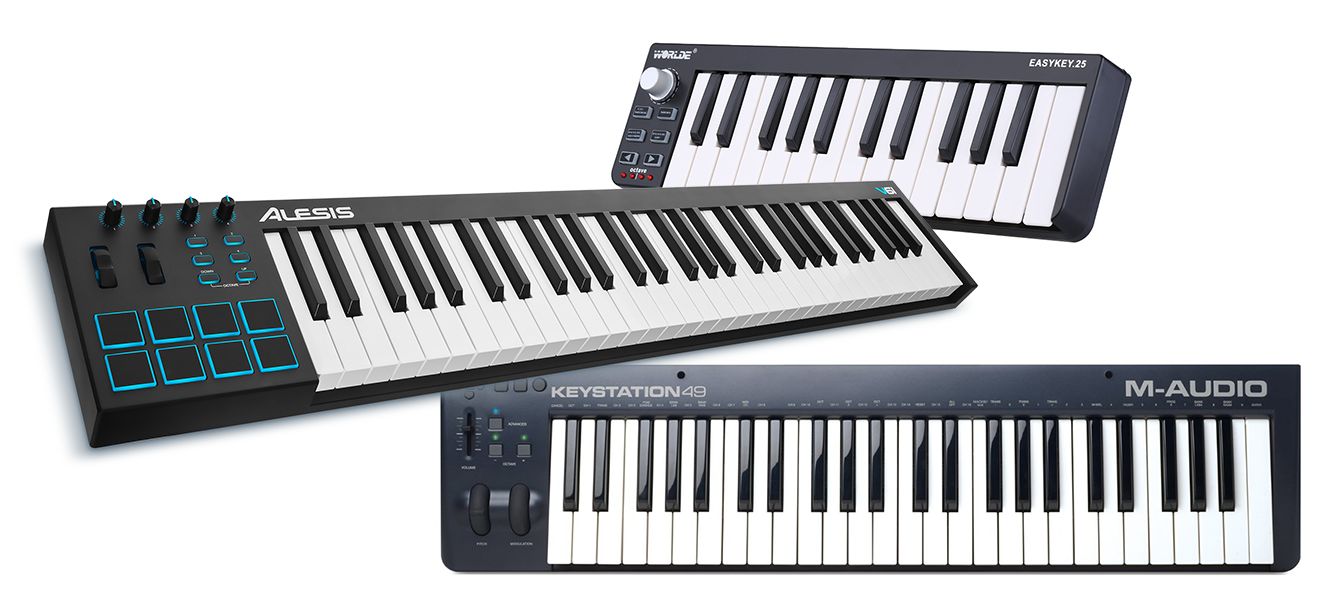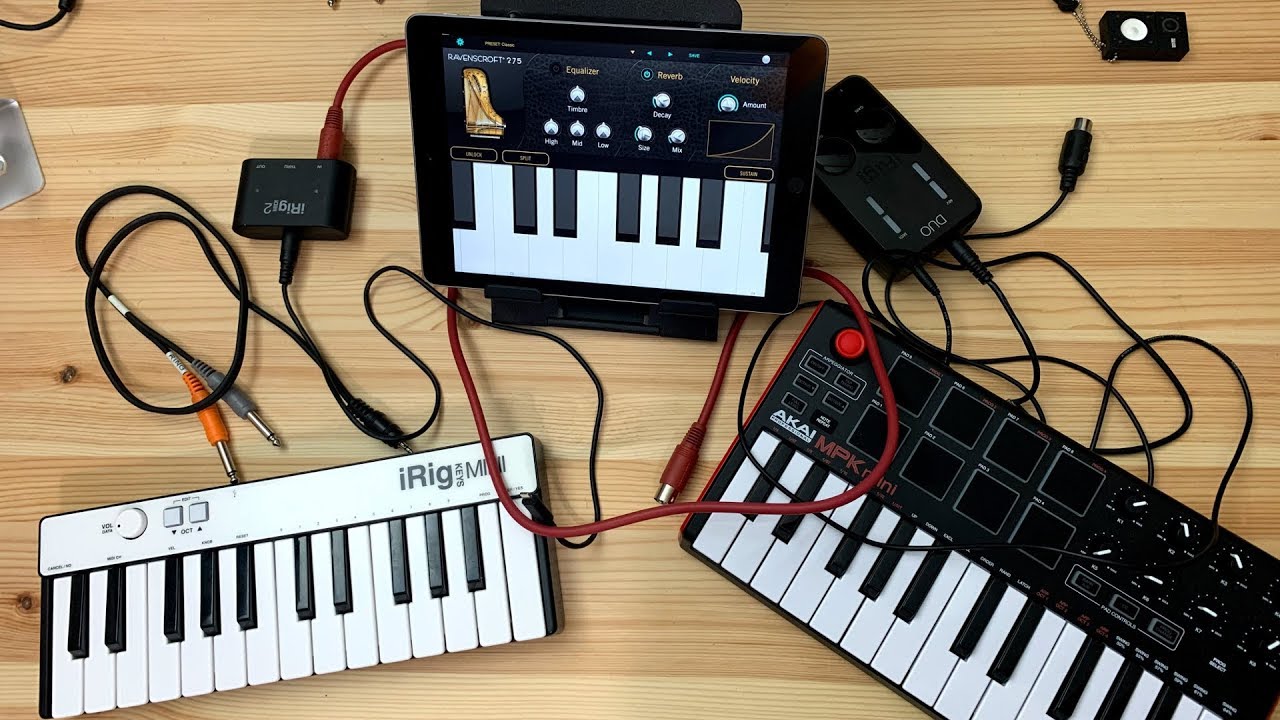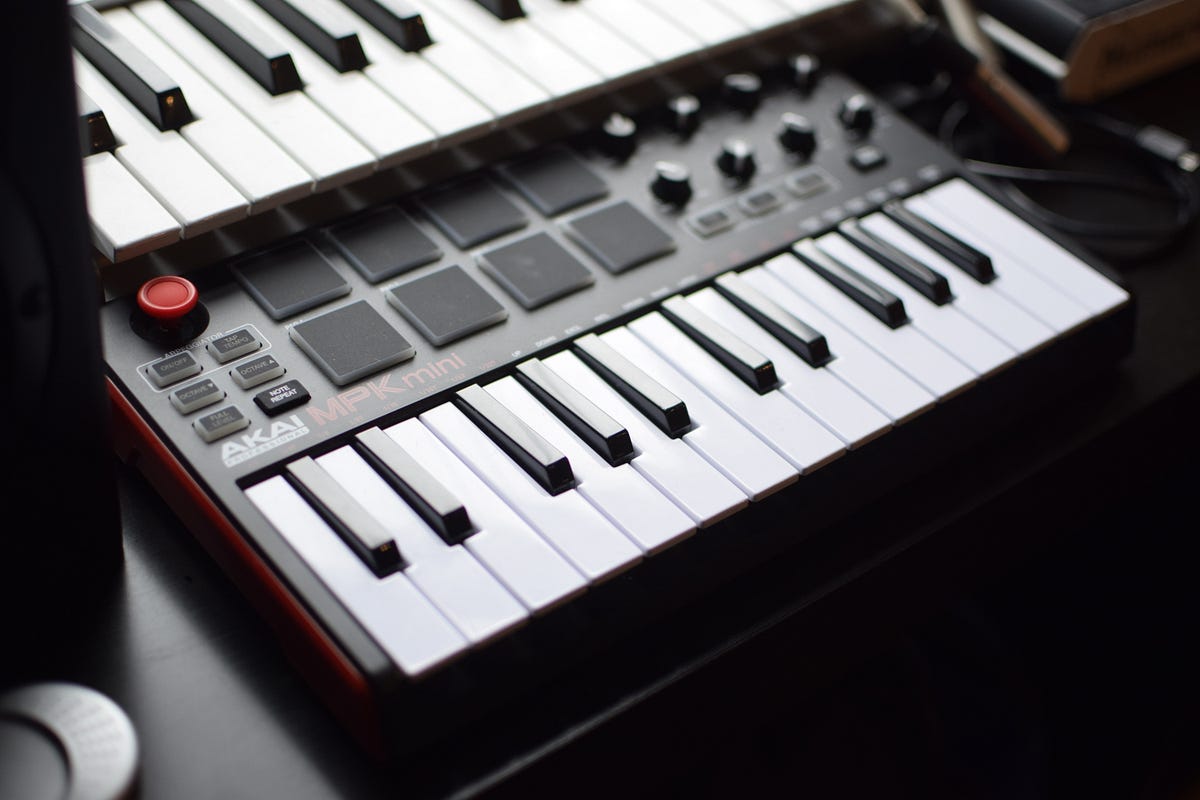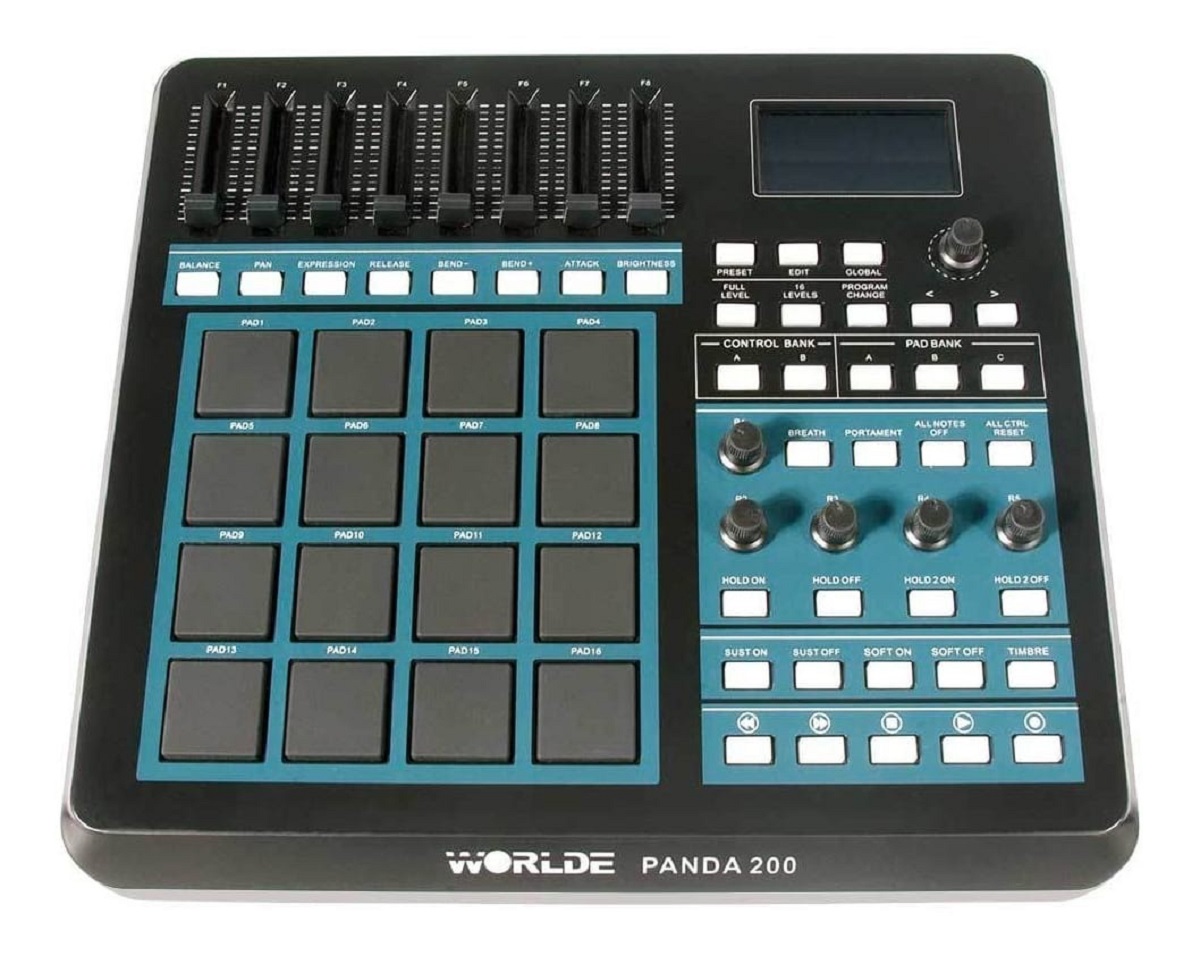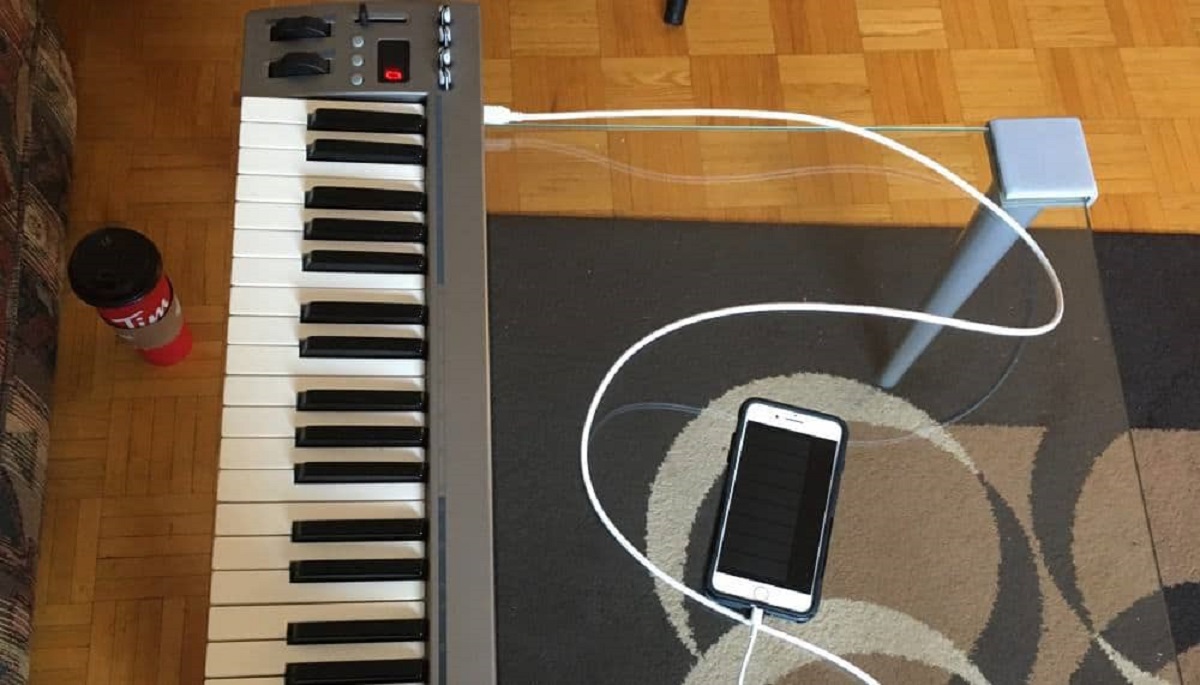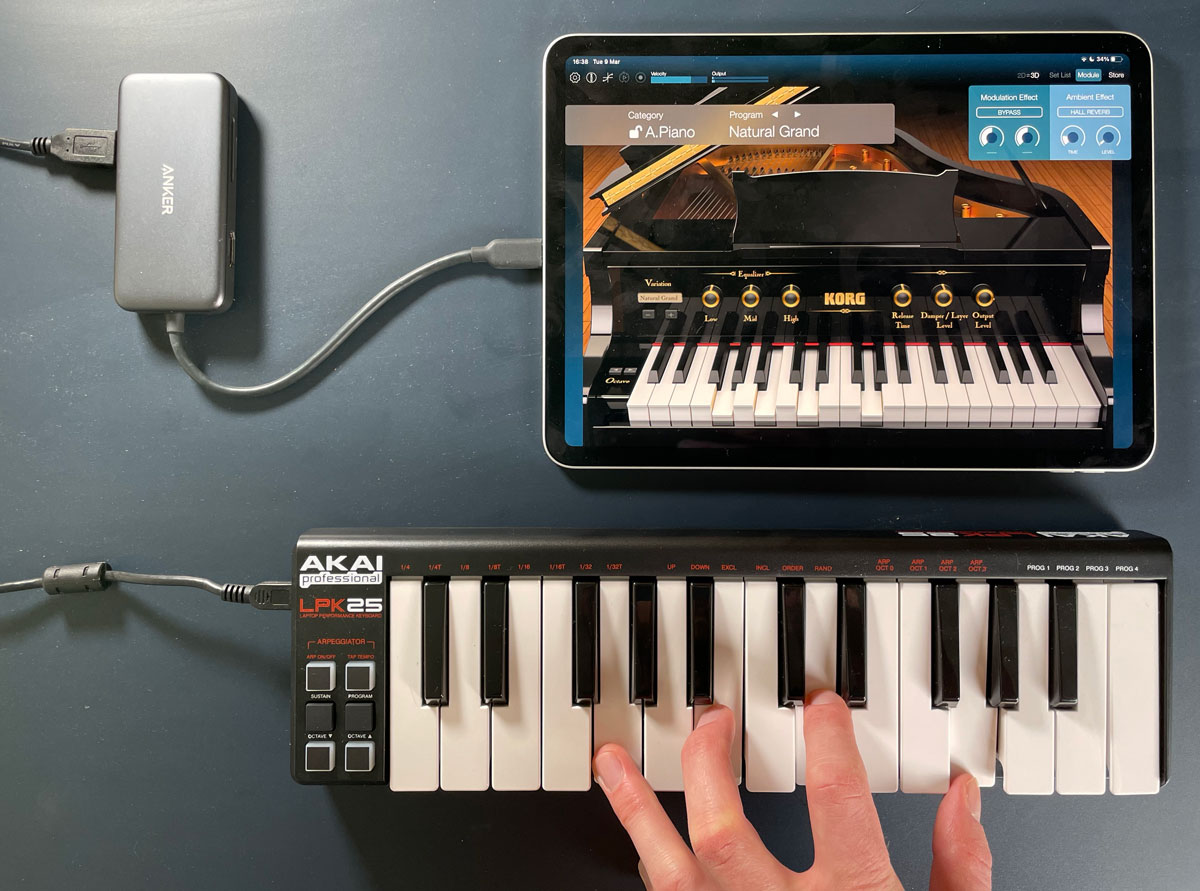Introduction
Introduction
When it comes to creating music in the digital realm, having the right tools at your disposal is crucial. A MIDI keyboard is an essential piece of equipment for musicians, producers, and composers, offering a tactile and intuitive way to interact with digital audio workstations (DAWs) and virtual instruments. MIDI keyboards come in various sizes, each offering a unique set of advantages and functionalities. Understanding the differences between the available key counts is pivotal for selecting the ideal MIDI keyboard to suit your musical needs.
This article will delve into the different key counts available for MIDI keyboards, ranging from the compact 25-key options to the expansive 88-key models. By exploring the characteristics and best use cases for each key count, readers will gain valuable insights into which MIDI keyboard size aligns best with their musical preferences and production workflows.
Whether you are a traveling musician in need of a portable solution or a pianist looking for a MIDI keyboard that closely emulates the feel of a traditional piano, this comprehensive guide will illuminate the distinct features and benefits of 25-key, 49-key, 61-key, and 88-key MIDI keyboards. Let's embark on this exploration to uncover the ideal MIDI keyboard size for your musical endeavors.
25-Key MIDI Keyboards
25-key MIDI keyboards are compact and portable, making them an excellent choice for musicians on the go. Despite their small form factor, these keyboards offer a surprising amount of functionality, making them a popular option for producers and performers seeking a streamlined and space-efficient solution.
These keyboards are well-suited for creating melodies, basslines, and simple chord progressions, making them an ideal choice for electronic music producers and songwriters looking for a convenient input device. Additionally, due to their small footprint, 25-key MIDI keyboards are often favored by musicians who travel frequently or have limited studio space.
While 25 keys may seem restrictive compared to larger keyboard sizes, many 25-key MIDI controllers feature octave shift buttons, allowing users to access a wider range of notes without sacrificing portability. This feature enables musicians to navigate through multiple octaves seamlessly, effectively expanding the keyboard’s playable range.
Furthermore, 25-key MIDI keyboards often integrate additional controls such as knobs, pads, and faders, providing tactile manipulation of software parameters and enhancing the overall music production experience. These controllers offer a balance between portability and functionality, catering to the needs of music creators who prioritize mobility without compromising on performance capabilities.
In summary, 25-key MIDI keyboards are versatile, portable, and well-suited for musicians who prioritize mobility and space efficiency. Their compact size and essential features make them an excellent choice for producers, songwriters, and performers seeking a convenient and capable music production tool.
49-Key MIDI Keyboards
49-key MIDI keyboards strike a balance between compactness and extended playability, making them a popular choice for musicians and producers seeking a versatile and ergonomic solution. With an additional two octaves compared to 25-key models, these keyboards offer an expanded range for playing melodies, harmonies, and basslines without the bulk of larger keyboards.
These keyboards are well-suited for musicians who require a more extensive playing range without sacrificing portability. The additional keys provide a more intuitive and comfortable playing experience, making it easier to perform complex musical passages and chord voicings. This extended range also allows for a more expressive and dynamic performance, catering to a wide range of musical styles and genres.
Furthermore, 49-key MIDI keyboards often feature a variety of performance and control elements, including assignable knobs, faders, and pads, enhancing the creative workflow and providing hands-on manipulation of software instruments and effects. These additional controls empower musicians to shape and modulate their sounds with precision, adding a tactile and interactive dimension to music production.
For producers and composers working within limited studio spaces, 49-key MIDI keyboards offer a compelling combination of playability and compactness, making them an ideal choice for those seeking a versatile and ergonomic music production tool. Additionally, the portability of these keyboards makes them well-suited for live performances and on-the-go music creation.
In summary, 49-key MIDI keyboards offer an expanded playing range and a comprehensive set of performance controls, making them an excellent choice for musicians and producers who prioritize versatility, playability, and portability in their music production endeavors.
61-Key MIDI Keyboards
61-key MIDI keyboards strike a balance between compactness and extended playability, making them a popular choice for musicians and producers seeking a versatile and ergonomic solution. With an additional two octaves compared to 25-key models, these keyboards offer an expanded range for playing melodies, harmonies, and basslines without the bulk of larger keyboards.
These keyboards are well-suited for musicians who require a more extensive playing range without sacrificing portability. The additional keys provide a more intuitive and comfortable playing experience, making it easier to perform complex musical passages and chord voicings. This extended range also allows for a more expressive and dynamic performance, catering to a wide range of musical styles and genres.
Furthermore, 61-key MIDI keyboards often feature a variety of performance and control elements, including assignable knobs, faders, and pads, enhancing the creative workflow and providing hands-on manipulation of software instruments and effects. These additional controls empower musicians to shape and modulate their sounds with precision, adding a tactile and interactive dimension to music production.
For producers and composers working within limited studio spaces, 61-key MIDI keyboards offer a compelling combination of playability and compactness, making them an ideal choice for those seeking a versatile and ergonomic music production tool. Additionally, the portability of these keyboards makes them well-suited for live performances and on-the-go music creation.
In summary, 61-key MIDI keyboards offer an expanded playing range and a comprehensive set of performance controls, making them an excellent choice for musicians and producers who prioritize versatility, playability, and portability in their music production endeavors.
88-Key MIDI Keyboards
88-key MIDI keyboards are the largest and most comprehensive option, offering a full range of piano keys in a compact digital format. These keyboards are designed to closely emulate the feel and playability of a traditional acoustic piano, making them an ideal choice for pianists, composers, and musicians who require an extensive playing range and nuanced expression.
Due to their expansive key count, 88-key MIDI keyboards provide a complete piano playing experience, allowing musicians to perform intricate classical pieces, expressive jazz compositions, and complex arrangements with ease. The extended range enables seamless navigation across multiple octaves, facilitating the exploration of diverse musical styles and genres.
Beyond their playing capabilities, 88-key MIDI keyboards often feature a range of performance and control elements, including weighted keys, aftertouch, and assignable knobs, providing a dynamic and expressive platform for music creation. The weighted keys simulate the authentic touch and response of an acoustic piano, enhancing the pianistic experience and allowing for nuanced dynamics and articulation.
For composers and producers seeking a versatile and expressive input device, 88-key MIDI keyboards offer a comprehensive set of features and functionalities, making them an excellent choice for music production, composition, and live performance. Despite their larger size, many 88-key MIDI keyboards are designed with portability in mind, catering to musicians who require a full piano range without sacrificing mobility.
In summary, 88-key MIDI keyboards provide an expansive playing range, authentic piano feel, and a comprehensive set of performance controls, making them an exceptional choice for pianists, composers, and musicians who prioritize expressive playability and a complete piano experience in their music production and performance endeavors.
Conclusion
Choosing the right MIDI keyboard size is a pivotal decision for musicians, producers, and composers, as it directly impacts their creative workflow, playability, and musical expression. Each key count, from the compact 25-key models to the expansive 88-key keyboards, offers distinct advantages and functionalities tailored to different musical preferences and production requirements.
25-key MIDI keyboards, with their compact size and essential features, cater to musicians prioritizing mobility and space efficiency. These controllers are well-suited for electronic music producers, songwriters, and performers seeking a convenient and capable music production tool without the bulk of larger keyboards.
49-key MIDI keyboards strike a balance between compactness and extended playability, making them an excellent choice for musicians and producers seeking a versatile and ergonomic solution. The additional keys provide an expanded range for playing melodies, harmonies, and basslines without sacrificing portability.
61-key MIDI keyboards offer a compelling combination of playability and compactness, making them an ideal choice for musicians and producers seeking a versatile and ergonomic music production tool. The extended range and comprehensive set of performance controls cater to a wide range of musical styles and genres.
88-key MIDI keyboards, with their expansive playing range, authentic piano feel, and comprehensive set of performance controls, are an exceptional choice for pianists, composers, and musicians who prioritize expressive playability and a complete piano experience in their music production and performance endeavors.
By understanding the unique characteristics and best use cases for each key count, musicians can make informed decisions when selecting a MIDI keyboard that aligns with their musical preferences, production workflows, and performance needs. Whether it’s portability, extended playability, or authentic piano feel, the diverse range of MIDI keyboard sizes ensures that there’s a perfect fit for every musician’s creative journey.










